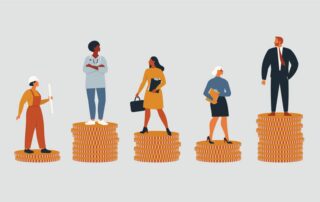We believe that economic justice begins with fair compensation for all women, and we build evidence to support equal pay policies, livable
minimum wages, unions and labor rights, and better of job quality for women and their families.
Gender and Racial Wage Gaps Marginally Improve in 2022 but Pay Equity Still Decades Away
In 2022, women working full-time year-round made 84.0 cents [...]




